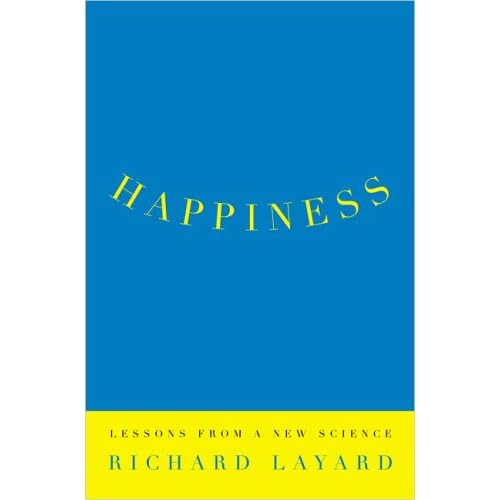
Layard is described on the dust jacket as ‘one of Britain’s best-known economists and a world expert on unemployment and inequality’. As you’d expect, his background profoundly informs his take on happiness.
The first part of the book surveys the ‘problem’ – the now-well-known statistic that although (US) incomes have doubled over the past 15 years, people are no happier. Why is this so?
Explanations include:
- The hedonic treadmill – we quickly adapt to ups and downs
- Social comparison – if everyone’s income has improved, where’s the fun in that?
- Difficulties finding work-life balance
- Pervasive inequality.
This first part also touches on things that make little or no difference to our happiness: age; gender; looks; IQ; and education.
And those that do: family relationships; financial situation; work; community and friends; health; personal freedom; and personal values.
In the second part Layard turns to remedies, which for him are essentially social and economic and focus on issues such as pollution, equality, poverty, and mental health. His prescription for a happier society includes:
- Monitoring national happiness levels
- Re-thinking issues such as taxes, which can help preserve work-life balance, and performance-based pay, which can feed the rat race mentality
- Spending more on Third World assistance
- Spending more on remedying mental illness
- Promoting family-friendly work practices
- Subsidizing community activities
- Reducing high unemployment via ‘tough-and-tender’ policies
- Fighting want-escalation by controls on advertising, especially to children
- Expanding education to include morality, empathy, emotion management, parenting and citizenship, and promoting a sense of purpose greater than the individual.
In short:
Layard draws on research from psychology, neuroscience, sociology and applied economics in a style that’s readable and clear. The book’s analysis of the happiness ‘problem’ is comprehensive, but its solutions are largely social and economic. If you’re looking for a more personal approach to a happier life, for techniques and tools to boost your own happiness, then this book may not satisfy you.
Title: Happiness: Lessons from a new science
Author: Richard Layard
Publisher information: The Penguin Press, New York, 2005